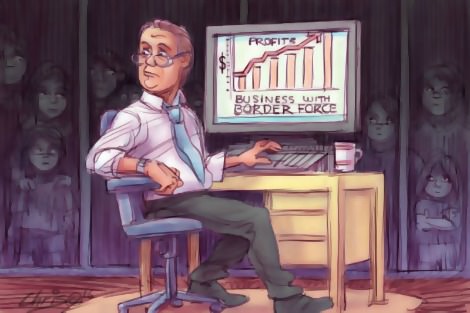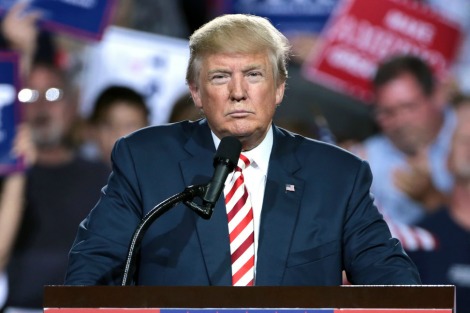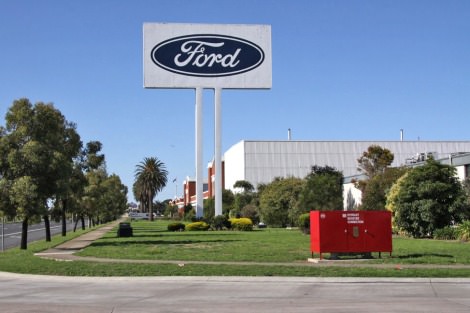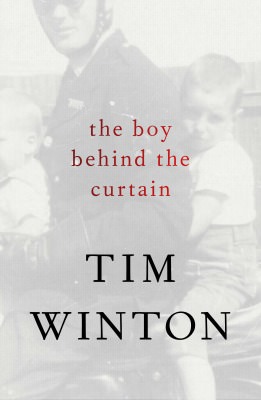Keywords: Acting
There are more than 200 results, only the first 200 are displayed here.
-

ARTS AND CULTURE
- Tim Kroenert
- 23 November 2016
5 Comments
The welfare system Daniel experiences is a bureaucratic nightmare, populated by condescending Health Care Professionals, shadowy and calculating Decision Makers, managers who loom over their clients like stern parents, and caseworkers who stifle any human compassion for their desperate supplicants. He is grilled by a welfare officer about every aspect of his health except the only relevant one, his heart. Later, he runs afoul of the agency's 'online by default' processes. Daniel has never used a computer in his life.
READ MORE 
-

AUSTRALIA
- Rod Grant
- 18 November 2016
18 Comments
Having a sense of something as right or wrong, good or bad, is the essence of humanity. We get it from home, from education, religion, friends, the media. It's the sniff test or the pub test or the gut feeling or the Bible or Quran or Torah. We all have it. And just as people have a sense of right and wrong, we also have a very good humbug detector, and it's clanging loudly when politicians unctuously claim all their 'stop the boats' strategies are driven by desire to prevent drownings at sea.
READ MORE 
-

ARTS AND CULTURE
- Tim Kroenert
- 15 November 2016
1 Comment
In science fiction, stories of first contact typically have as much to say about humanity as they do about the extra-terrestrial creations of the author's imagination. Mary Doria Russell's 1998 novel The Sparrow explores the consequences of a Jesuit-led mission to a planet near Alpha Centauri, which are profound for the planet's sentient inhabitants and devastating for the human travellers. As in The Sparrow, language is central to Quebecois filmmaker Denis Villeneuve's philosophically piquant first contact story Arrival.
READ MORE 
-

INTERNATIONAL
- David James
- 10 November 2016
17 Comments
The first step for a business person is to make the sale, usually by over-promising and tapping into the emotional triggers of the customer. That is what Trump did. Over and over, he assured everyone that electing him would be 'fantastic'; he would deliver; customer-value is in the bag. The next step, once the sale is made, is for a hard financial logic to be applied. Trump's hype will be, at the very least, toned down. Once the customer has coughed up, business people typically become extremely pragmatic.
READ MORE 
-

AUSTRALIA
- Rick Measham
- 07 November 2016
28 Comments
Growing up in Geelong, many friends worked at Ford, or Alcoa, Pilkington or any of the other allied suppliers. As each of these stopped manufacturing in Victoria's second city, employers and governments promised retraining. But where are the jobs? Factories are quickly moving to a 'lights out' operation, with no lights, no air conditioning — and no humans. Modelling suggests nearly 5000 Geelong residents will lose their jobs to the decline in manufacturing before the end of 2017, and 200,000 nationwide. Can we find new-economy jobs for every one of them?
READ MORE
-

ARTS AND CULTURE
- Tim Kroenert
- 26 October 2016
8 Comments
Perhaps it is the high egocentricity of Woody Allen's films that makes it difficult to separate the man from his work. More so even than Roman Polanski, the allegations of sexual abuse that have been levelled at Allen in life lend an unsavoury flavour to his art. Even revisiting Annie Hall these days, Allen's classic and endlessly innovative 1977 romantic comedy is tainted retrospectively by a sneaking sense of sexism, if not outright misogyny. The same is true of Café Society.
READ MORE 
-

ARTS AND CULTURE
- Tim Kroenert
- 26 October 2016
1 Comment
'When I was a kid I liked to stand at the window with a rifle and aim it at people.' So begins the opening, titular essay. It is a singularly arresting entre to an essay that charts the author's complex relationship with firearms (part awe, part terror), by way of commenting on the place of guns in Australian society. In this collection of essays Winton adopts this mode frequently, weaving (sometimes deeply) personal narratives into stirring, thoughtful commentary on a broad range of social and political issues.
READ MORE 
-

ARTS AND CULTURE
- Tim Kroenert
- 19 October 2016
Our first glimpse of Jesse, a 16-year-old model recently arrived in LA, is of her sprawled on a sofa, scantily clad and smeared with fake blood. Later, during her first professional shoot, she is ordered to strip naked, and to endure being smeared with gold paint by the photographer's own hand. Another model boasts about the routine cosmetic surgery she undergoes to maintain the object that is her body. In the eyes of the industry, Jesse as an 'object' is already perfect.
READ MORE 
-

ARTS AND CULTURE
- Tim Kroenert
- 12 October 2016
2 Comments
Representation of minority identities in popular entertainment is key to amplifying and dignifying those identities and their stories. Conversely, the lack of representation is a form of silencing. It's why the charges of racism laid against the all-black Luke Cage is so laughable. 'I will never get tired of seeing a bullet-proof black man,' series creator Cheo Hodari Coker told the LA Times earlier this month, positing the character as a riposte to the phenomenon of police shootings of unarmed black men in the US.
READ MORE 
-

ARTS AND CULTURE
- Tim Kroenert
- 05 October 2016
1 Comment
At the opening of the Environmental Film Festival Australia in Melbourne last week, festival patron and former Greens senator Bob Brown highlighted the movement against oil drilling in the Great Australian Bight. He painted a picture wherein a major spill in the region could lead to an environmental disaster stretching as far from the site as the NSW coast. His words make the release of Deepwater Horizon, about the disaster that led to the 2010 BP oil spill in the Gulf of Mexico, even more timely.
READ MORE 
-

ARTS AND CULTURE
- Tim Kroenert
- 28 September 2016
1 Comment
Snowden's disclosures regarding the data-mining activities of the US government sparked a worldwide debate about security versus privacy that rages to this day. If his status as either a villain or a hero - a traitor, or the ultimate patriot - remains a matter of debate in some circles, you won't die wondering in which camp Oliver Stone sits. In Snowden the famously didactic filmmaker posits an utterly sympathetic portrait within the structure of a lithe and gripping political thriller.
READ MORE 
-

RELIGION
- Frank Brennan
- 23 September 2016
18 Comments
'No good will be served by a royal commission auspiced by the state telling a Church how it judges or complies with its theological doctrines and distinctive moral teachings. By all means, set universal standards of practice expected of all institutions dealing with children, but do not trespass on the holy ground of religious belief and practice.' Fr Frank Brennan SJ addresses the Freedom for Faith Conference in Melbourne, 23 September 2016.
READ MORE